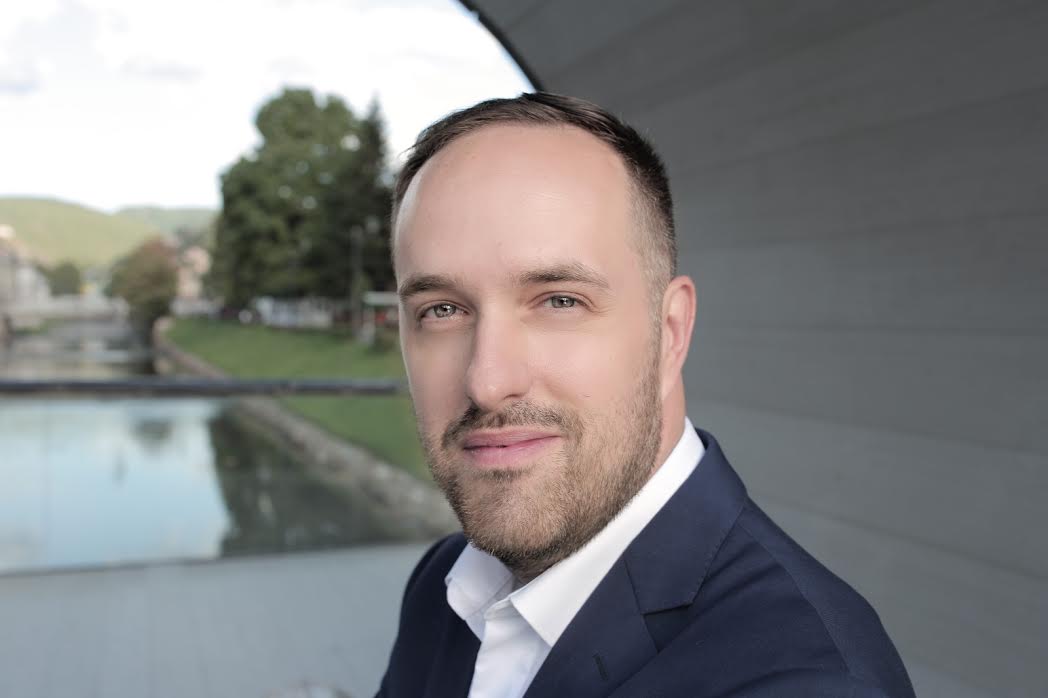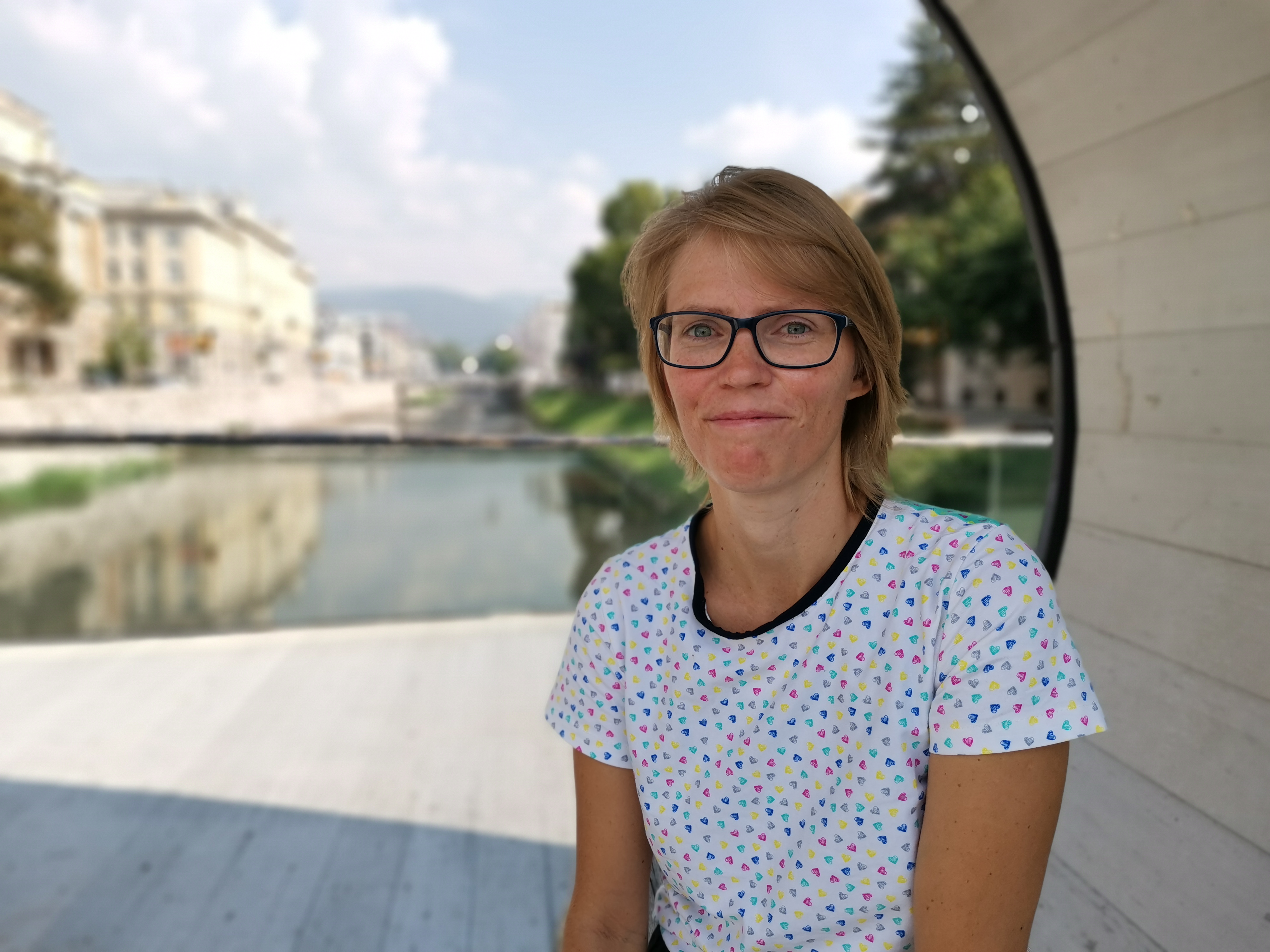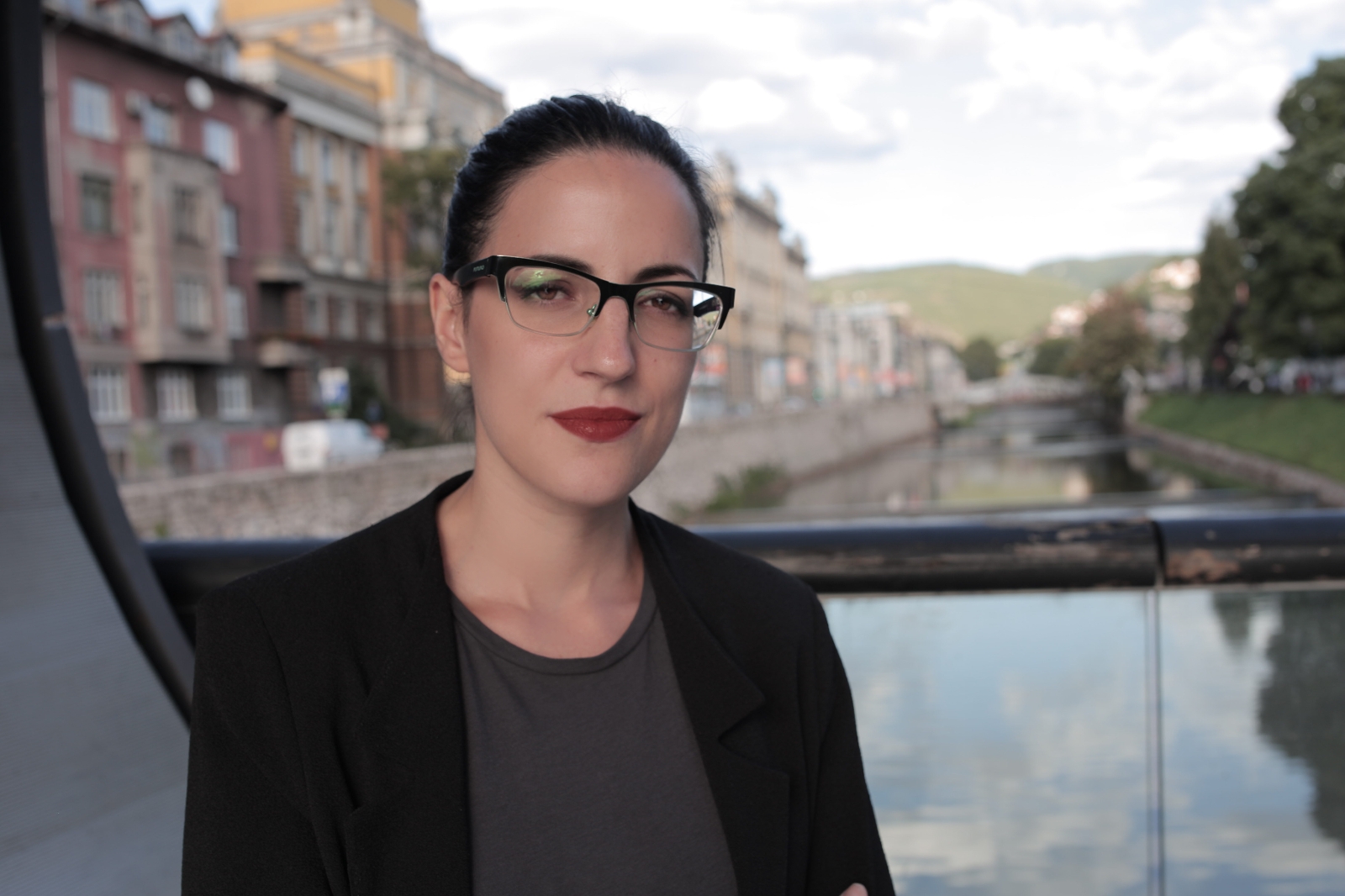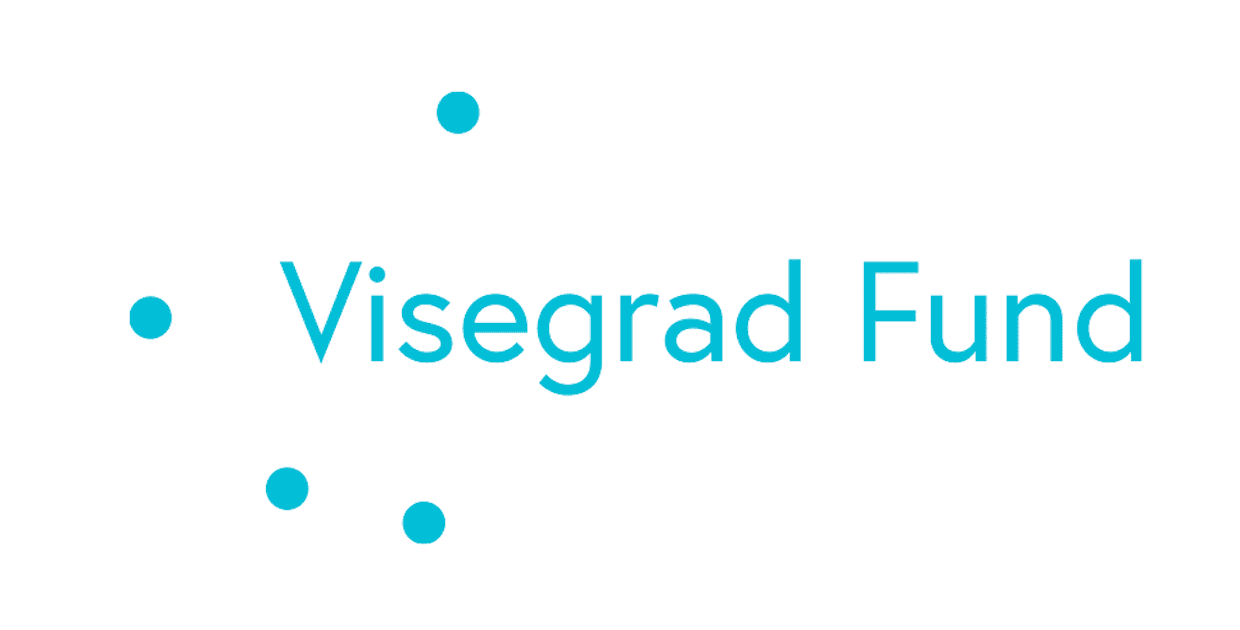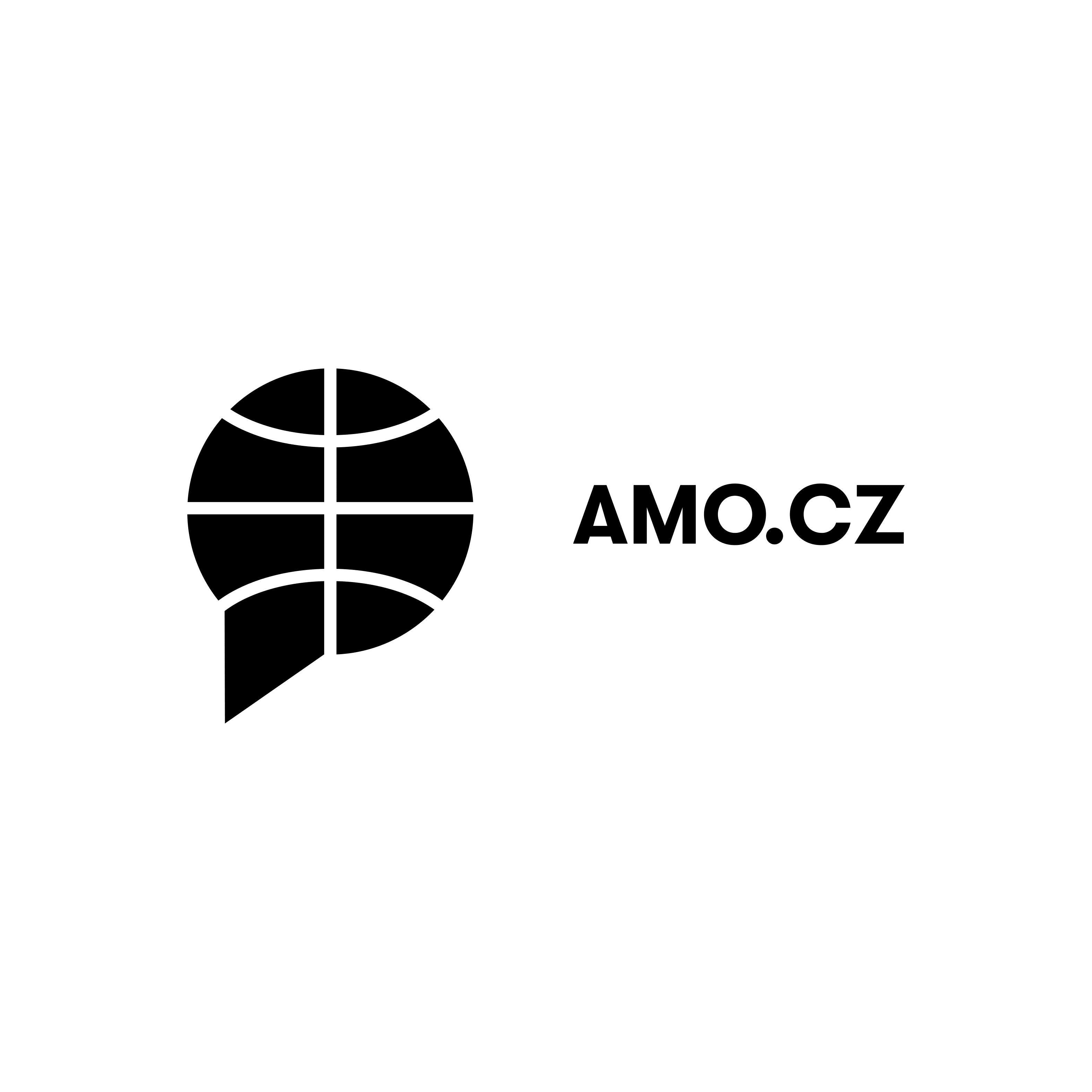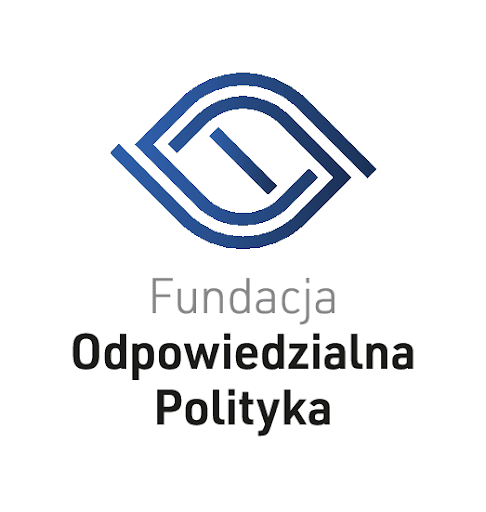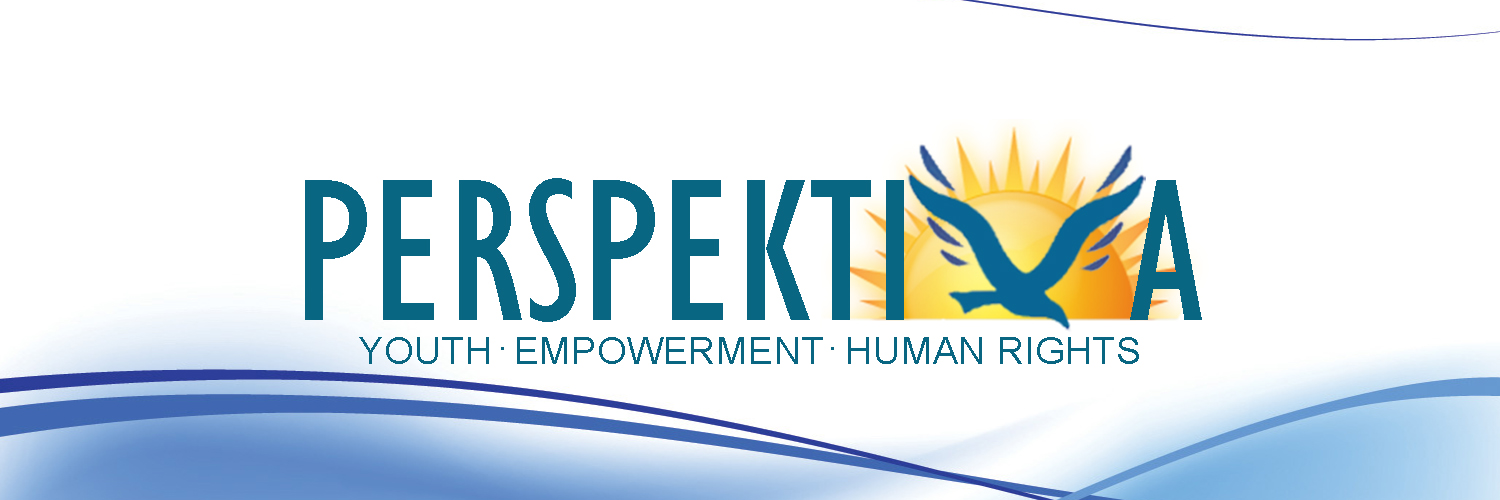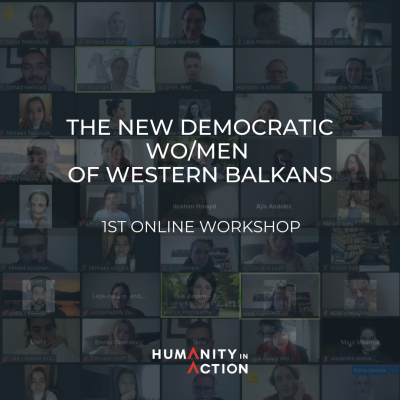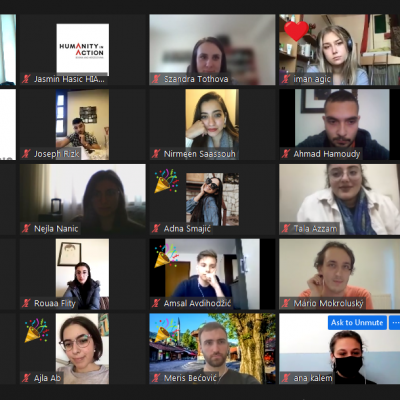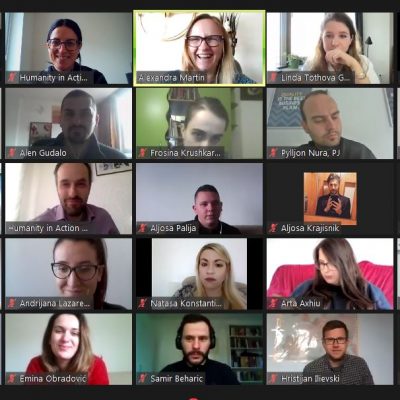Details
Article
We welcomed participants from Albania, Bosnia and Herzegovina, Montenegro, North Macedonia and Serbia of the ‘Supporting Democratization and Reconciliation Process in the Western Balkans’ program, supported by the International Visegrad Fund and implemented in partnership with Globsec, Asociace pro mezinárodní otázky/Association for International Affairs, Perspektiva, Fundacja Odpowiedzialna Polityka and Transparency International Magyarország for a two day program.
Day 1
We kicked off with a welcome session with the representatives of the V4 Embassies Ágnes Angyal, Deputy Head of Mission, Embassy of Hungary to Bosnia & Herzegovina and Patrik Turošik, Deputy Head of Mission, Embassy of the Slovak Republic to Bosnia & Herzegovina who have presented the stance of the V4 countries towards the WB6 countries, emphasizing the support and the cooperation they offer in different fields. Our participants had very interesting questions related to the regional relations in the Balkans and the the Mini-Schengen Area.
of Hungary to Bosnia & Herzegovina and Patrik Turošik, Deputy Head of Mission, Embassy of the Slovak Republic to Bosnia & Herzegovina who have presented the stance of the V4 countries towards the WB6 countries, emphasizing the support and the cooperation they offer in different fields. Our participants had very interesting questions related to the regional relations in the Balkans and the the Mini-Schengen Area.
 Next session of the ‘Supporting Democratization and Reconciliation Process in the Western Balkans’, supported by the International Visegrad Fund is facilitated by Iva Merheim-Eyre, Research Fellow, Asociace pro mezinárodní otázky/Association for International Affairs, Czech Republic. The session on disinformation in the media and history of propaganda in the 20th century with an overview of the Western Balkans media provided some excellent examples of disinformation placed that create an atmosphere of mistrust with the public.
Next session of the ‘Supporting Democratization and Reconciliation Process in the Western Balkans’, supported by the International Visegrad Fund is facilitated by Iva Merheim-Eyre, Research Fellow, Asociace pro mezinárodní otázky/Association for International Affairs, Czech Republic. The session on disinformation in the media and history of propaganda in the 20th century with an overview of the Western Balkans media provided some excellent examples of disinformation placed that create an atmosphere of mistrust with the public.
We moved on with a very intriguing session led by  Dominika Hajdu, Research Fellow and Katarína Klingová, Senior Research Fellow, Globsec Policy Institute, Slovakia, who joined us virtually to talk to our participants about the Advanced Methods of Manipulation in the Digital Space. We learned about the AI manipulation on peoples’ identities, deepfakes and the bot network used to spread disinformation for different purposes. At the same time our speakers provided tools for fact-checking and protection from online fraud and identity theft.
Dominika Hajdu, Research Fellow and Katarína Klingová, Senior Research Fellow, Globsec Policy Institute, Slovakia, who joined us virtually to talk to our participants about the Advanced Methods of Manipulation in the Digital Space. We learned about the AI manipulation on peoples’ identities, deepfakes and the bot network used to spread disinformation for different purposes. At the same time our speakers provided tools for fact-checking and protection from online fraud and identity theft.
Moving in the direction of the EU related topics. Miklós Ligeti, Legal Director, Transparency International Magyarország, Hungary joined us virtually to speak about the EU’s “Sharp Teeth” and the Corruption and Rule of Law. Participants learned about the levels of corruption present in the EU and different legislative and tool to combat corruption. There were quite a few examples coming from Hungary that displayed some corrupted diplomatic affairs over the years. Our participants had many local examples of corruption within their own countries which still imposes one of the main obstacles of WB countries joining the EU.
During the Media 4 Peace session, facilitated by Luis  Bekteshi, Perspektiva, the participants discussed various issues related to media literacy in the WB6 and worldwide. After the discussion, the participants got a task to make a usage of the discussed tools of media literacy and identify articles with different type of discourse.
Bekteshi, Perspektiva, the participants discussed various issues related to media literacy in the WB6 and worldwide. After the discussion, the participants got a task to make a usage of the discussed tools of media literacy and identify articles with different type of discourse.
Our final session of the day was facilitated by the Humanity in Action BiH Executive Director Jasmin Hasić on the topic of  reconciliation and state captured democratization in post-conflict BiH. Our participants learned about the strategies that are used to create and maintain the status quo in a “captured state” before they delved into an interactive group task to choose a political leader in the WB country, explain his-her leadership style, explain how the strategies s/he employs work with or contradict the EU conditionality agenda in the WB accession process and suggest potential „exit strategies“ for the opposition.
reconciliation and state captured democratization in post-conflict BiH. Our participants learned about the strategies that are used to create and maintain the status quo in a “captured state” before they delved into an interactive group task to choose a political leader in the WB country, explain his-her leadership style, explain how the strategies s/he employs work with or contradict the EU conditionality agenda in the WB accession process and suggest potential „exit strategies“ for the opposition.
Day 2
 We started our last day of the ‘Supporting Democratization and Reconciliation Process in the Western Balkans’ workshop in Sarajevo, supported by the International Visegrad Fund, with a session on Election Processes and Human Rights facilitated by Zofia Lutkiewicz, Elections Expert and Robert Lech, Elections Expert, Fundacja Odpowiedzialna Polityka (Political Accountability Foundation), Poland. Together, through an interactive discussion, they managed to explain the general system and mechanism of the election process and its implementation.
We started our last day of the ‘Supporting Democratization and Reconciliation Process in the Western Balkans’ workshop in Sarajevo, supported by the International Visegrad Fund, with a session on Election Processes and Human Rights facilitated by Zofia Lutkiewicz, Elections Expert and Robert Lech, Elections Expert, Fundacja Odpowiedzialna Polityka (Political Accountability Foundation), Poland. Together, through an interactive discussion, they managed to explain the general system and mechanism of the election process and its implementation.
 We are closing the ‘Supporting Democratization and Reconciliation Process in the Western Balkans’ conference with a session on Working in Vulnerable Communities and Social Activism by Samet Shabani from Horizon Civitas. After dwelling into the bits and pieces of what social activism is and how it works, the group discussed various vulnerable communities and how that activism can be applied to them.
We are closing the ‘Supporting Democratization and Reconciliation Process in the Western Balkans’ conference with a session on Working in Vulnerable Communities and Social Activism by Samet Shabani from Horizon Civitas. After dwelling into the bits and pieces of what social activism is and how it works, the group discussed various vulnerable communities and how that activism can be applied to them.
Learn more about the project and all 30 participants at this LINK.


